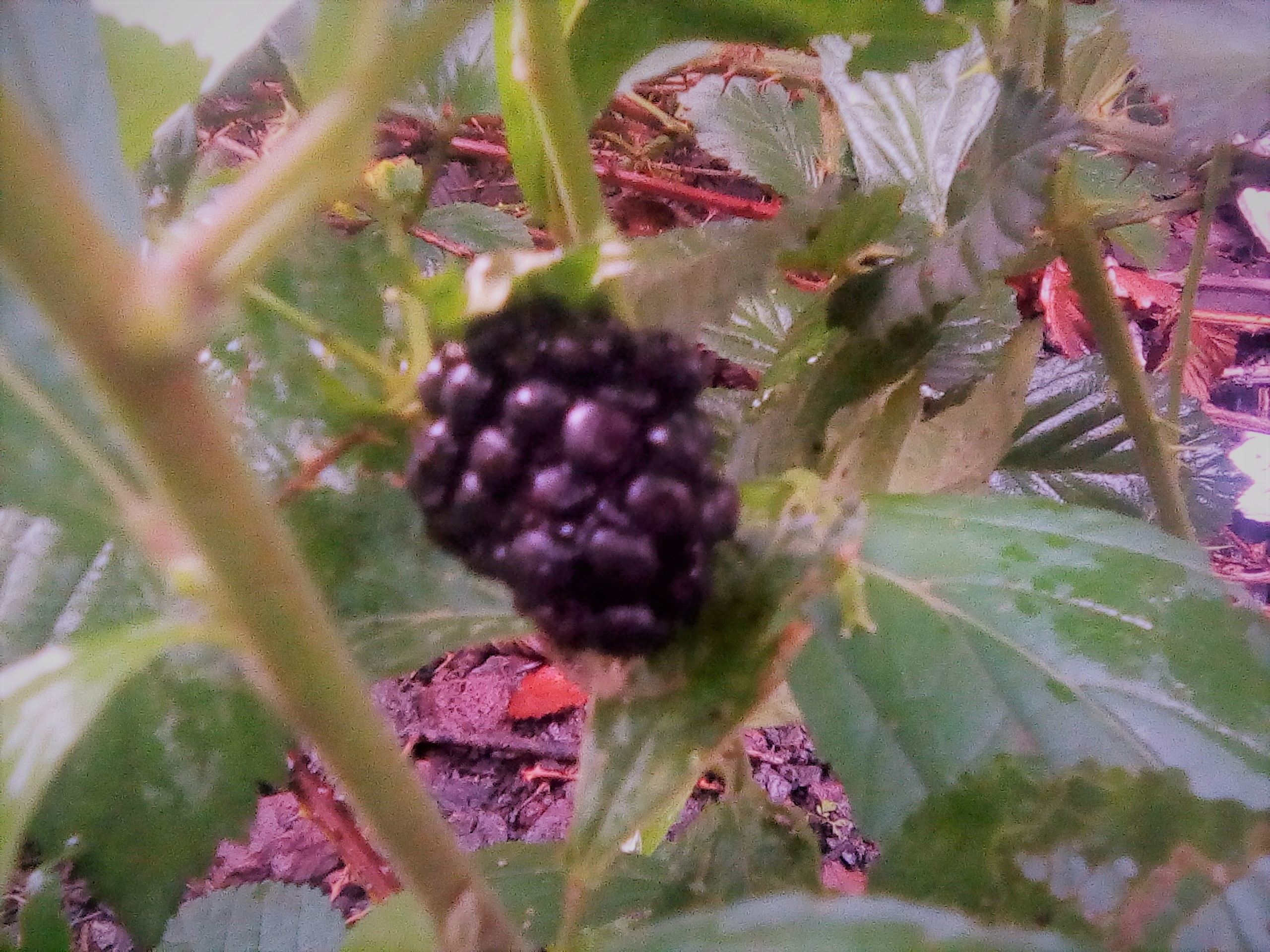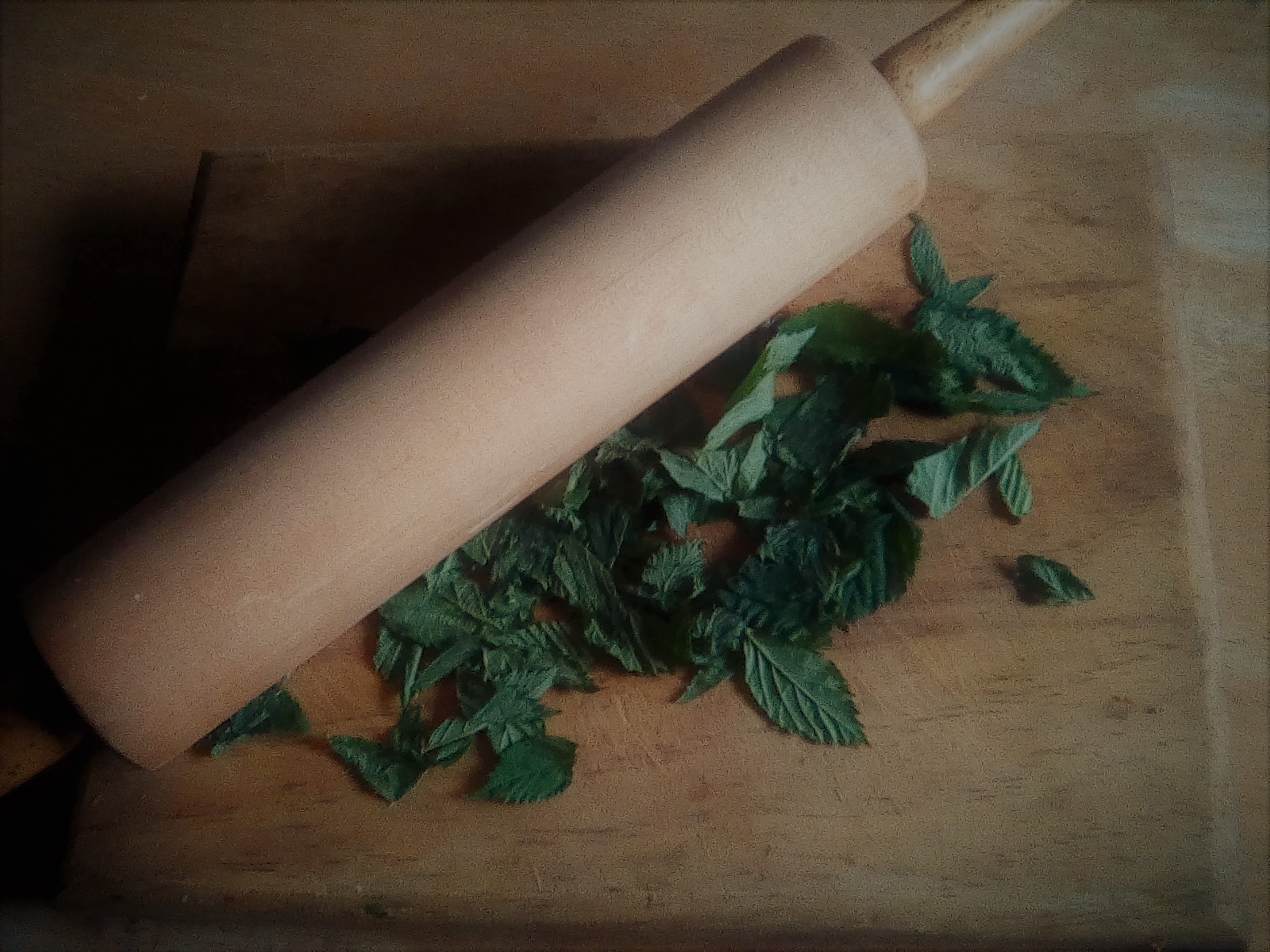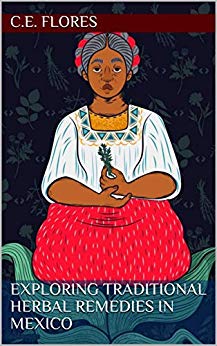
The blackberry bush in the backyard is trying to take over! Shoots are popping up left and right, and it continues to wrap its spiny clutches around the lemon tree despite being cut back several times. Since I will not be one of those ill-prepared preppers that lament the loss of coffee and tea after TSHTF (See Into AutumnInto Autumn) if you’ve got it, use it right?
Blackberry tea leaf is easy to prepare. Just pour boiling water over dried leaves and let steep. It’s a darker color than some of the other teas I’ve prepared. It has a rich, deep taste, just right with a drop of honey as a sweetener.

Fermenting the leaves increases the tea’s flavor. To ferment, crush wilted blackberry leaves with a wooden rolling pin. Wrap them in a damp cloth and hang in a dark, warm area. In 2 or 3 days, the leaves will smell like roses which I thought odd until I realized that blackberries (Rubus allegheniensis) are part of the rose family after all. Remove the leaves from the cloth and allow them to dry completely before storing.
Not only is blackberry leaf tea delicious but it’s good for you as well. Used medicinally since the ice age, leaves were chewed to strengthen gums and made into plasters to treat shingles and hemorrhoids. During the Medieval and Renaissance periods, blackberry leaf infusions were used as a gargle for a sore mouth, throat cankers and wound washing. Now in more enlightened times, blackberry leaves have been shown to fight cancerous cells and are a good source of antioxidants. Blackberry leaf has also been effective in diabetes treatment, as a wrinkle preventative, and as a protection against cardiovascular disease.
There’s been some evidence that the tannins found in blackberry leaves, bark and roots may cause nausea in some people. However, adding milk to the tea neutralizes the tannins quite nicely. Thus the German regulatory agency for herbs has approved blackberry leaf tea for relieving non-specific acute diarrhea. In addition, just like our medieval ancestors, the Germans have determined that blackberry leaf tea, mouthwash or gargle is appropriate for mouth sores and gum inflammation.

With all these reasons to drink blackberry leaf tea, perhaps this spring you should harvest your own. Pluck the tender light green new leaves before the plant flowers, being mindful of those tiny pickers. Ferment as described above or hang to dry and you’ll be all set.
******************************



Ooooo I wonder if they’d grow in the jungle.
LikeLiked by 1 person
They seem pretty hardy, so I expect they would! Some areas in the US are literally overrun with blackberry bushes!
LikeLiked by 1 person